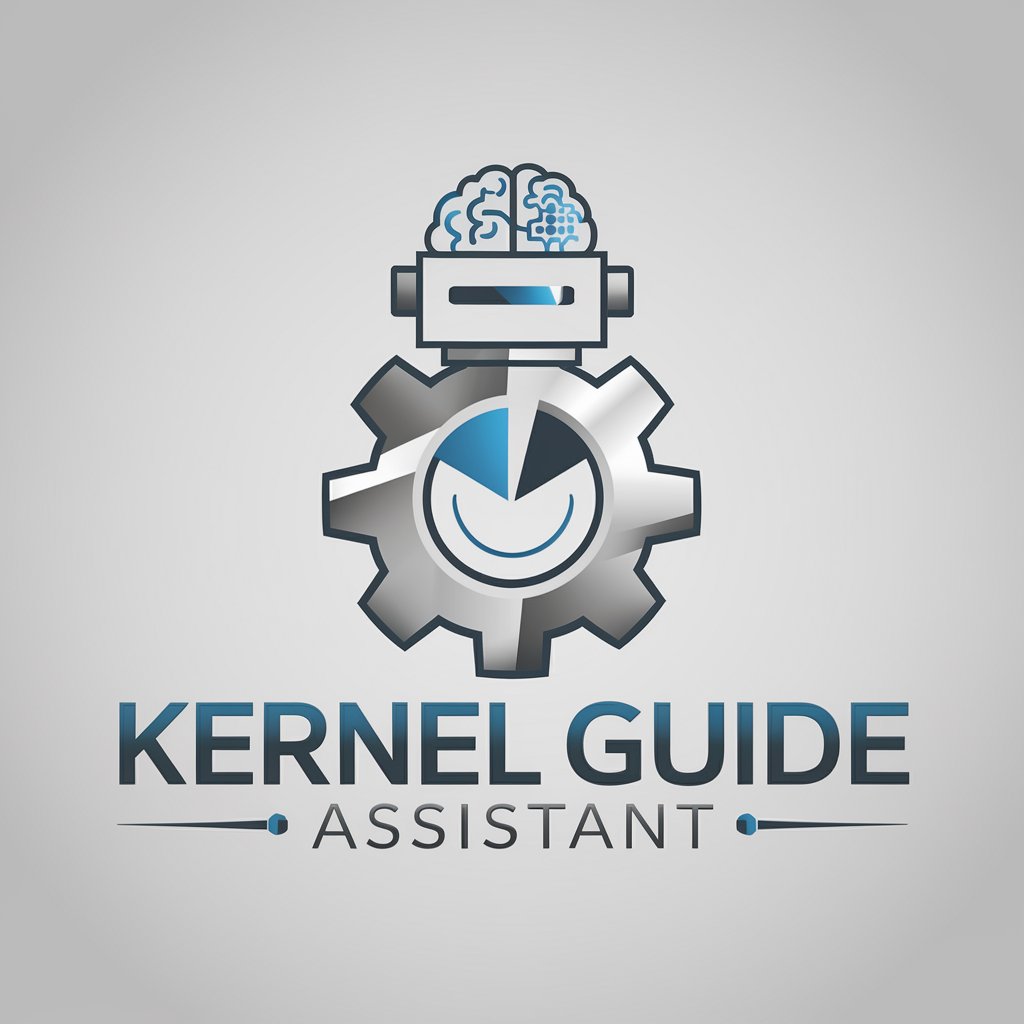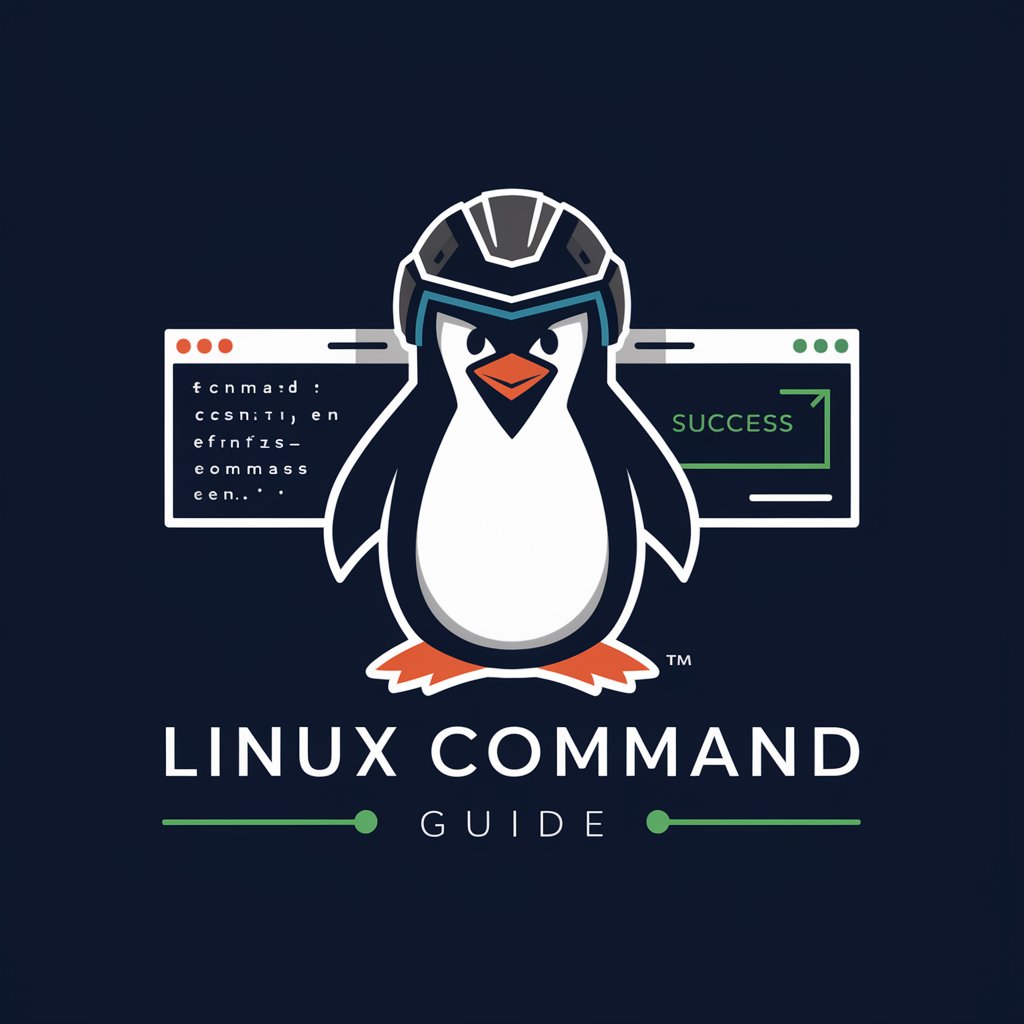
Kernel Guide Assistant - Guide on Kernel Modules

Welcome to Kernel Guide Assistant!
Unlocking Linux Kernel Mysteries
Explain the basic structure of a Linux kernel module.
How do you handle memory management in kernel modules?
What are the best practices for debugging kernel modules?
Can you describe the role of the `file_operations` structure in character device drivers?
Get Embed Code
Introduction to Kernel Guide Assistant
Kernel Guide Assistant is designed to provide comprehensive insights into Linux kernel module programming, leveraging the 'Linux Kernel Module Programming Guide'. It offers a detailed exploration of module basics, character device drivers, sysfs, and more, ensuring users gain a thorough understanding of kernel module development. For example, users learning to write their first kernel module will find step-by-step guidance, from setting up the development environment to handling module licensing. Powered by ChatGPT-4o。

Main Functions of Kernel Guide Assistant
Explaining Kernel Module Basics
Example
Describing how to create a simple 'Hello World' kernel module.
Scenario
A beginner seeks to understand the fundamentals of kernel module construction.
Guidance on Character Device Drivers
Example
Elaborating on the process of writing a character device driver and interacting with user space.
Scenario
A developer aims to create a device driver for custom hardware.
Sysfs Integration
Example
Demonstrating how to create sysfs entries for kernel modules.
Scenario
A system administrator needs to expose module parameters to user space via sysfs.
Handling Process Blocking and Threads
Example
Explaining how to use kernel threads and work queues.
Scenario
A software engineer is implementing asynchronous operations within a kernel module.
Deadlock and Collision Prevention Techniques
Example
Discussing mutexes, spinlocks, and atomic operations for synchronization.
Scenario
An advanced user is optimizing a kernel module for concurrency.
Ideal Users of Kernel Guide Assistant Services
Linux Kernel Developers
Developers working on the Linux kernel or kernel modules, seeking detailed documentation and examples.
System Administrators
Administrators and DevOps professionals interested in customizing kernel behavior or performance tuning.
Educators and Students
Academic professionals and students in computer science learning about operating systems internals and module development.
Embedded Systems Engineers
Engineers developing drivers and modules for embedded Linux systems, requiring specific hardware integrations.

How to Use Kernel Guide Assistant
1
Begin by visiting a site offering AI-driven assistance without the need for an account or subscription, such as yeschat.ai, to explore its features through a free trial.
2
Familiarize yourself with the topics covered by the Linux Kernel Module Programming Guide, including module basics, character device drivers, sysfs, and more.
3
Utilize specific questions or topics related to Linux kernel module development when interacting with the Assistant to obtain detailed and precise explanations.
4
Apply the guidance and explanations provided by the Assistant to your kernel module development projects or for enhancing your understanding of kernel internals.
5
For advanced queries or when seeking deeper insights, reference the detailed sections of the guide as suggested by the Assistant for comprehensive learning.
Try other advanced and practical GPTs
Sybil System
Empowering decisions with AI

Smart Home Security
Empower Your Home with AI Security

So You Want to Be a: Growth Marketing Manager
Master Growth Marketing with AI-Powered Simulations

Pink meaning?
Empowering creativity with AI

Issues meaning?
Unlock insights with AI-powered clarity

Just Do It meaning?
Empower Creativity with AI Insights

Virtuoso
Empowering Your Virtual Creations with AI

Luna - Your Sweetheart
Your Sweetheart in AI Companionship

Haus bewerten: Rechner
Estimate property values with AI precision.

GIF Origin
Discover the story behind any GIF

Restaurant
Discover Your Next Favorite Meal

I'LL QUIT LOVIN' YOU meaning?
Explore the Depths of Love's Meaning

Detailed Q&A about Kernel Guide Assistant
What is the Kernel Guide Assistant?
The Kernel Guide Assistant is a specialized tool designed to provide detailed explanations, guidance, and information from the Linux Kernel Module Programming Guide, supporting developers in kernel module development.
How can the Assistant help with kernel module development?
It offers precise explanations on concepts, guides through theoretical aspects of development, clarifies details from the guide, and suggests best practices without executing or debugging code.
Can the Assistant provide code examples?
While it does not directly assist with coding, it can explain code concepts, discuss examples from the guide, and provide theoretical knowledge essential for writing or understanding kernel modules.
What if my question extends beyond the guide's scope?
The Assistant will inform you when a query falls outside its knowledge base and suggest additional resources or approaches for further exploration.
How current is the information provided by the Assistant?
The Assistant's knowledge is based on the Linux Kernel Module Programming Guide it was trained on, focusing on concepts applicable to kernel versions up to its last update, ensuring relevance to contemporary development practices.





